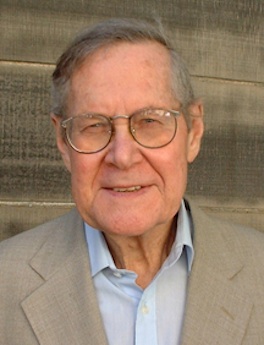By Krista Shaw
Irving Singer, a foremost humanistic philosopher, wrote extensively on the meaning of love, unearthing historical philosophic perspectives on it and identifying its relation to sexuality. Singer’s first published work, however, was an assignment that he received when he served the Army during World War II: “History of the 210th Field Artillery Group.” While Singer maintained his philosophical emphasis throughout his career, he also continued to publish on diverse topics ranging from classical music composers to the art of film to human creativity.
Singer’s is best known forThe Nature of Love, an extensive three volume study of how love has been comprehended throughout the philosophic tradition and how he thinks love ought to be viewed in modern times. The work begins with a look at Plato’s treatment of love and proceeds to study the various perspectives of other philosophers, theologians, authors, playwrights, and poets throughout history.
In The Nature of Love, Singer characterizes love as an attitude rather than as a simple feeling. He espouses an idea of love as the specific attitude of being willing to sacrifice for the benefit of another. In Singer’s view of love, one person “bestows” value on another person and, therefore, becomes desirous of forming a relationship with that person because of that assigned value. Singer acknowledges that falling in love may be due to passion, but claims that being in love involves an individual’s choice to change his or her life, and being in love is, thus, “the actual making of a new world.” Staying in love, to Singer, is the greatest achievement because it tests a relationship against the outside world and allows a person to share his or her life with another.
Though some critiqued Singer’s views of love as unduly Romantic, Singer acknowledged and embraced his nonconformity to most of the philosophic community. According to Boston’s WCVB report, Richard Holton, head of MIT’s Department of Philosophy and Linguistics, said of Singer: “He has always seen himself as a representative of a kind of philosophy that gets short shrift in many analytical departments.”
According to the news office at the Massachusetts Institute of Technology, Singer was born on Christmas Eve in 1925 to Isadore and Nettie Stromer Singer, who had immigrated to the United States from Austria-Hungary. The Singer family lived in Brooklyn, New York, and operated a grocery store on Coney Island. Singer skipped three grades and graduated from high school at fifteen. He temporarily attended Brooklyn College before World War II, and after his war service, he studied for a time at Biarritz American University in France. Singer utilized the G.I. Bill to finish his undergraduate education at Harvard University, where he graduated Phi Beta Kappa and Summa Cum Laude in 1948. In 1949 Singer married Josephine Fisk, an opera singer who collaborated on many of his works.
Singer continued his studies at Oxford University and Harvard, earning a PhD in philosophy from Harvard in 1952. He then held positions at Harvard, Cornell, the University of Michigan, and Johns Hopkins University, before finally settling at MIT in 1958. He taught for MIT’s Department of Philosophy and Linguistics and its precursors until he reached the age of eighty-five. During his career Singer received a Fulbright research grant to study in Paris and a Rockefeller Foundation grant to study in London. Additionally, he received fellowships with the Guggenheim Foundation and Villa I Tatti, the Harvard University Center for Italian Renaissance Studies.
Irving Singer died February 1, 2015, at the age of 89. His extensive works are currently being collected and reprinted by a new MIT project, The Irving Singer Library, and many of his lectures are available online through MIT OpenCourseWare.
Krista Shaw is a senior at the University of Dallas majoring in English. The University of Dallas is home to the Eta of Texas Chapter of Phi Beta Kappa.




